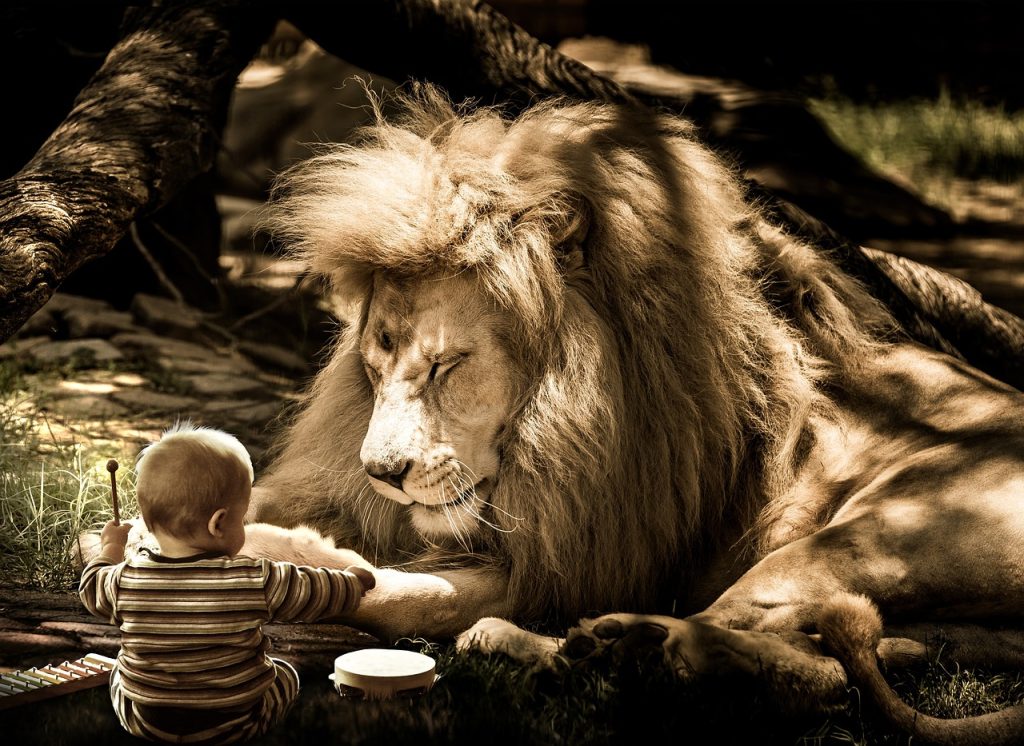If you’ve ever wondered what sounds lions make, you’re in for a roaring treat! Lions are often depicted as mighty and ferocious creatures, but their vocal repertoire goes far beyond just a fearsome roar. In this article, we’ll explore the various sounds that lions produce, from their deep roars that can be heard for miles, to the softer grunts and purrs that showcase their more affectionate side. Get ready to discover the hidden symphony of the king of the jungle!
Different Sounds made by Lions
Lions are known for their powerful and distinct sounds that they use to communicate with each other. These sounds are essential for various purposes, such as establishing territory, bonding with their pride members, and attracting mates. Let’s explore the different sounds lions make and the significance behind each one.
Roaring
Roaring is perhaps the most iconic sound associated with lions. It is deep, resonating, and can carry for long distances. The roar of a lion can be heard up to five miles away! This incredible vocalization serves several purposes in the lion kingdom.
Roaring as a form of Communication
Territorial Defense
Roaring plays a crucial role in establishing territory boundaries. Male lions roar to warn neighboring males that the area is already claimed and should not be encroached upon. It serves as a potent deterrent, often preventing conflict and reducing physical confrontations between rival males. A loud, thunderous roar can send a clear message that this is an established territory.
Social Bonding
Roaring is not limited to territorial defense alone. It also serves as a way for lions to announce their presence to the rest of the pride and bond with their fellow members. When a lion roars, it often prompts other pride members to join in, creating a chorus of powerful sounds that resonate through the African savannah. This vocal exchange strengthens the social bonds within the pride, reinforcing their unity and cooperation.
Mating Calls
Lastly, roaring is a crucial part of lion courtship rituals. During the mating season, male lions use their roars to attract interested females from afar. They advertise their fitness and availability to potential mates, showcasing their dominance through the intensity and frequency of their roars. Roaring acts as a form of male competition, with the loudest and most impressive roars often attracting the attention of the lionesses.

Growling
While roaring is the grand symphony of the lion kingdom, growling is a more intimate sound that conveys a range of emotions and intentions. Growling can serve as both a threat and a warning, offering valuable insights into the emotional state of a lion.
Growling: Threat or Warning
Intimidation
Growling can be a powerful tool for intimidation. When a lion feels threatened or wants to assert dominance, it may emit a low, guttural growl accompanied by a baring of teeth. This display is a clear warning to whoever or whatever is causing the lion’s unease that they should retreat or face the consequences. The deep timbre of a lion’s growl is enough to send shivers down the spine of any potential adversary.
Aggression
Growling can escalate into aggression if a lion feels its initial warnings are not being heeded. This can lead to physical attacks, especially when challenged by another lion or when protecting its territory or pride. Growling, in this context, serves as a precursor to more aggressive behaviors, and it is crucial for other lions to recognize and respect the boundaries being established.
Insecurity
On the other hand, growling can also indicate feelings of insecurity or fear. Lions, like any other creature, may have moments of vulnerability when they feel uncertain or threatened. In these situations, a growl can serve as a defense mechanism, warning others to keep their distance or not to approach too closely. It is a way for lions to assert control over their environment and protect themselves from potential dangers.

Moaning
While roaring and growling emphasize power and dominance, moaning takes on a softer, more vulnerable tone. Lions use moaning as a means of expressing their emotional state and communicating various needs.
Moaning can signify hunger, pain, or simply a desire for social interactions within the pride. It is a gentle sound, often accompanied by a gentle nuzzling of other pride members. Moaning serves as a way to elicit attention and care from their fellow lions, strengthening the bonds within the pride.

Grunting
Grunting is a versatile sound used by lions for different purposes. This muffled, rumbling noise often occurs during feeding or as a means of acknowledging the presence of other lions within the pride.
During feeding, lions can emit a series of low grunts. This sound indicates satisfaction and contentment, reflecting the pleasure they derive from their meal. Grunting in this context can also serve as a way to maintain harmony within the pride during mealtime, preventing potential conflicts by signaling their relaxed state.
Additionally, grunting can be a non-threatening acknowledgment. When lions encounter each other, they may emit soft grunts to recognize the presence of their peers. It acts as a way to communicate without instigating any confrontations and helps maintain a sense of social cohesion within the pride.

Purring
Just like their smaller domestic counterparts, lions are also capable of purring. However, the sound and purpose behind their purring can differ significantly.
When a lion purrs, it is often a sign of contentment, relaxation, and overall satisfaction. Purring can occur during grooming sessions or while resting with other pride members. This soft, rhythmic rumble emanating from their chest is a clear indication that they are experiencing comfort and pleasure.
Purring serves a dual purpose of expressing emotional well-being and strengthening social bonds within the pride. It is a gentle sound that can help to calm and reassure other lions, fostering a sense of unity and trust within the group.
In conclusion, the different sounds made by lions encompass a vast array of communication methods. Roaring, growling, moaning, grunting, and purring all play unique roles in the lion kingdom. Understanding these vocalizations provides valuable insights into their behavior, emotions, and social dynamics. The symphony of sounds created by lions is a powerful reminder of their strength, unity as a pride, and their place in the natural world.


